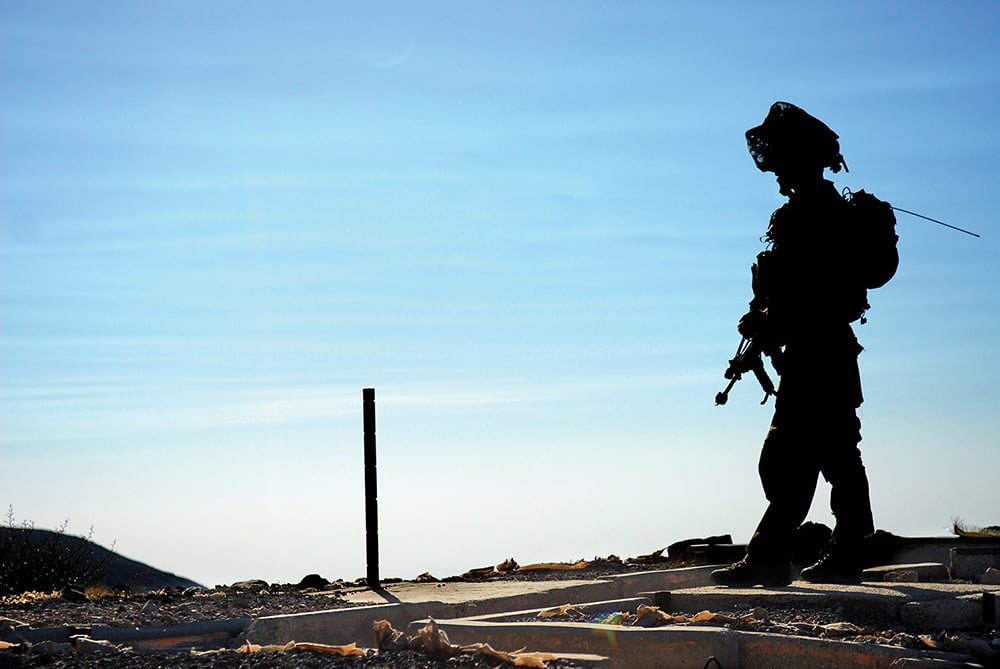
It’s pretty amazing, when you think about it.
Hundreds of young Jewish teenagers in America … making the decision to serve in the Israeli Defense Forces (IDF) once they complete high school.
When I graduated from high school, virtually no one enlisted in the IDF. Today every yeshiva high school has at least a couple of its graduates each year who move to Israel and serve in the IDF.
To gain a better understanding of this interesting phenomenon, I spoke to Noya Govrin, director of the Lone Soldiers Program at Nefesh B’Nefesh, who was happy to share some of the interesting statistics about the lone soldier program and discuss the issue with me in greater detail. “As of today, there are 3,500 lone soldiers from abroad in active duty, serving in the IDF. About 25% of them are from the United States,” said Govrin.
One of the things that I wondered about is when lone soldiers decide to enlist. Are most lone soldiers from America enlisting after high school? After a gap year in Israel? Or after college?
Govrin said, “The majority of American lone soldiers are coming after high school, either directly after high school or after a gap year program. In the past two years, there has been a notable increase in college graduates that come to Israel to serve as lone soldiers.”
Did the lone soldier number increase after Oct. 7? “There was an overall increase in the number of lone soldiers who enlisted after Oct 7,” said Govrin. “Not surprisingly, there has also been a general rise in interest to serve in the IDF since Oct. 7, including people who were ineligible for service but are still seeking to contribute to the country in a meaningful way.”
Do most lone soldiers make aliyah when they enlist? Or do they return home for jobs or schooling and perhaps make aliyah later? Govrin said that the overwhelming majority of lone soldiers make aliyah before they enlist. In fact, the Nefesh B’Nefesh program, in conjunction with the Friends of the IDF, assists those who make aliyah and who are then required to enlist afterwards.
It’s interesting to note what the colonels and other higher-ups in the IDF say about the lone soldiers in terms of their commitment and their skills, compared to Israelis who enlist. Govrin explained, “Israelis embrace lone soldiers with the highest level of appreciation, recognizing the tremendous efforts they make to serve among the ranks of the IDF. The high-ranking officers that we collaborate with for weekly parent Zoom sessions continuously speak highly of the lone soldiers in their units. These soldiers are consistently praised for their dedication, tenacity, spirit and willingness to serve for something bigger than themselves.”
What percentage of lone soldiers come back to serve in the reserves? “We do not have this exact statistic,” said Govrin. “However, we are elated by the recent government decision to recognize former lone soldiers who serve in reserves as lone reservists. This has been a long-awaited accomplishment for a community of people who chose to come to Israel and continue to serve in order to protect the country.”
It’s not easy being a lone soldier, as there are many specific challenges that American lone soldiers have in terms of integrating into the IDF and Israeli society. Govrin explained, “Traveling from abroad to live in Israel comes with its own challenges, such as learning a new language, integrating into a different culture, and understanding the Israeli bureaucratic systems. There are organizations, like Nefesh B’Nefesh and the NBN-FIDF Lone Soldiers Program, to help address these gaps in understanding and supporting them through the transition period. Lone soldiers must learn to navigate all that in addition to a military system that comes with its own vocabulary and culture. In many cases, they are the first one to do so in their family.
“While those who grow up in Israel have a whole network to teach them about the IDF system, lone soldiers must take the initiative to seek out this information and educate themselves. Family is a core value in Israeli society, and it can be incredibly tough for lone soldiers to be so far away from their family and friends. The idea of ‘chosen family’ is crucial and evident in the lone soldier community, many relying on each other for support, friendship and building traditions together.”
What does Govrin attribute the rise in interest among American teens wanting to serve in the IDF to? She explained, “There have always been some lone soldiers serving in the IDF as long as it has existed. Israel is a country with its olim playing a large part in its origin and ongoing development. I think what we are seeing now is an increased awareness of these soldiers and their contributions to the state of Israel and renewed Zionism at its core.”
Michael Feldstein, who lives in Stamford, is the author of “Meet Me in the Middle” (meet-me-in-the-middle-book.com), a collection of essays on contemporary Jewish life. He can be reached at michaelgfeldstein@gmail.com.








